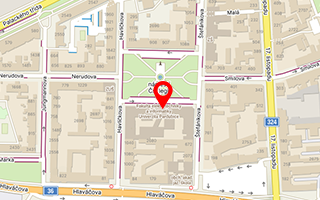The Research Center of the Faculty of Electrical Engineering and Informatics has a long-term focus on applied research and experimental development in the field of radar, navigation, and sensor technologies, with a strong emphasis on the use of artificial intelligence, advanced signal processing, and the development of specialized materials. The research integrates theoretical modeling, numerical simulations, as well as practical measurements and experiments.
Radar Systems and Advanced Algorithms
We develop and test modern radar systems and their components for object detection, tracking, classification, and localization in various environments. Our focus areas include:
- designing radar signal processing algorithms using machine learning and deep learning methods,
- adaptive control of transmitted radar signals with respect to range, resolution, and environmental conditions,
- developing methods for efficient real-time radar resource management.
Simulation and Modeling of Multifunction Radars
As part of algorithm development and system design, we create advanced software simulators of multifunction radar systems, which enable:
- testing and fine-tuning AI/ML algorithms for radar data processing across diverse scenarios,
- verifying system configurations and achievable parameters in a simulated environment,
- modeling radar system behavior in the presence of interference or in complex environments.
Advanced Electromagnetically Absorbing Materials and Technologies for Reduction of Radar Signature
We focus on the development and testing of materials and surface treatments for controlling the electromagnetic response of objects, particularly to reduce the radar detectability of UAVs and drones. Our research includes:
- design and synthesis of functional layers based on carbon and magnetic nanoparticles,
- simulation and experimental measurement of radar cross-section (RCS) across various frequency bands,
- development of lightweight, structurally suitable layers with optimized absorption characteristics,
- use of predictive models and AI for the design and optimization of material properties.
Navigation Systems and Their Applications in Transportation
Part of our research also involves the application of Global Navigation Satellite Systems (GNSS) to enhance the safety, reliability, and efficiency of transportation systems. We focus on:
- precise positioning of vehicles and transportation infrastructure,
- integration of GNSS data with other sensors and control systems,
- predictive analysis and modeling of traffic flow behavior.

